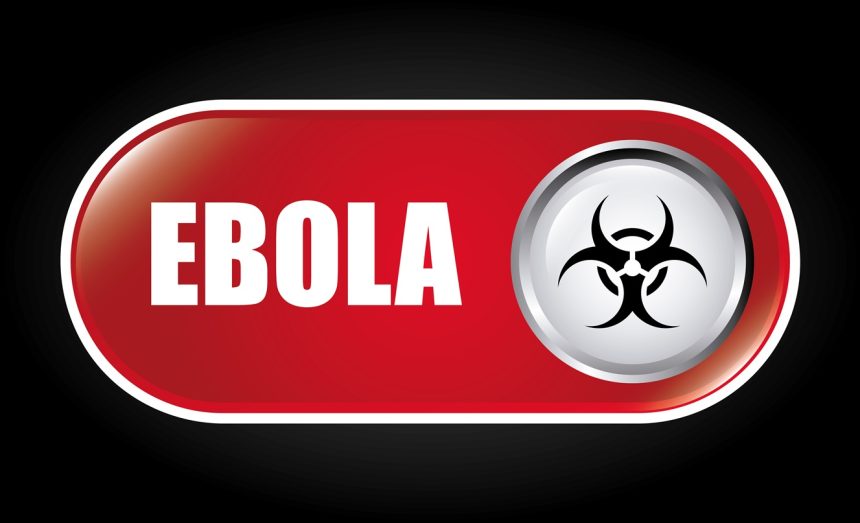The Democratic Republic of Congo (DRC) has recently declared a fresh outbreak of the Ebola virus, a development that has raised concerns across the African continent including Nigeria.
Tribune Online reports that the country confirmed its 16th Ebola outbreak, with officials recording 28 confirmed or suspected cases and 15 deaths in Kasai Province.
The index case was a 34-year-old pregnant woman in Boulapé, who tragically died after showing Ebola symptoms.
Ebola, first discovered in 1976, is caused by the Zaire ebolavirus. It spreads to humans from wild animals, often fruit bats or primates, before rapidly transmitting through human-to-human contact.
The virus spreads through direct contact with bodily fluids such as blood and vomit, or through contaminated objects like bedding and medical tools. Traditional burial practices involving direct contact with the deceased can further accelerate its transmission.
The disease’s early symptoms resemble malaria and typhoid, beginning with fever, intense fatigue, muscle pain, headache, and sore throat. As it progresses, patients may experience vomiting, diarrhoea, rashes, and organ failure. In severe cases, internal and external bleeding may occur.
In this article, Tribune Online takes a look at five key prevention measures against the virus:
Avoid contact with suspected cases
The virus is not only deadly but also highly contagious. Therefore, avoid touching the blood, vomit, faeces, or other bodily fluids of anyone who is sick or has died with symptoms of Ebola. If you suspect someone has the virus, alert health authorities immediately rather than attempting home care.
Exercise rigorous hand hygiene
Wash your hands frequently with clean water and soap, or use an alcohol-based sanitiser. Pay particular attention after touching potential sources of infection or after visiting hospitals and treatment centres.
Avoid bushmeat and wild animals
This measure is crucial. Handling or consuming bushmeat, especially bats, monkeys, or other wildlife, can trigger initial transmission of the virus. It is therefore advisable to stay away from these animals.
Use proper protective gear when caring for the sick
If caring for the sick is unavoidable, ensure you wear full personal protective equipment (PPE): gloves, gowns, masks, and eye protection. Follow strict protocols when putting on and removing protective clothing to avoid accidental exposure.
Stay updated with official guidelines
Lastly, stay informed with directives from health authorities and the World Health Organization. Monitor outbreak alerts, adhere to travel restrictions or screening measures, and learn safe burial practices in affected areas. Staying updated can significantly reduce your risk.
WATCH TOP VIDEOS FROM NIGERIAN TRIBUNE TV
- Let’s Talk About SELF-AWARENESS
- Is Your Confidence Mistaken for Pride? Let’s talk about it
- Is Etiquette About Perfection…Or Just Not Being Rude?
- Top Psychologist Reveal 3 Signs You’re Struggling With Imposter Syndrome
- Do You Pick Up Work-Related Calls at Midnight or Never? Let’s Talk About Boundaries






